Are "Blogger Outreach" Services Safe or Should I Avoid Them?

One of the most difficult and time-consuming things for a blogger to do is to network with other bloggers.
From your perspective, it's a difficult task to reach out to someone who you see as an equal or an influencer in the world of blogging, and try to become friends with them. It's like trying to send a letter to a celebrity and chat them up to be friends.
What if they have no time to read or respond to emails? What if they're busy with their site and don't have time to chat? What if they recognize your site and don't like you? There are a thousand what-ifs. Some of them may be true. I've been ignored plenty of times. Forbes initially denied me because they didn't like that I also wrote for Entrepreneur, Inc, and Business Insider. Eventually, the editor just started ignoring me.
Then you flip things over. Other people might view you as a blogger worth reaching out to. Yet, how often do you see that happening?
How many emails do you get about reading and interacting with another blog, or about exchanging links? How many connections do you get on social media that you disregard as simple engagement? How many of those are real people that are trying to reach out to you?
It's tricky to navigate. People are becoming numb to these outreach emails. I receive thousands of them every week. This turns blog outreach into a lot of work.
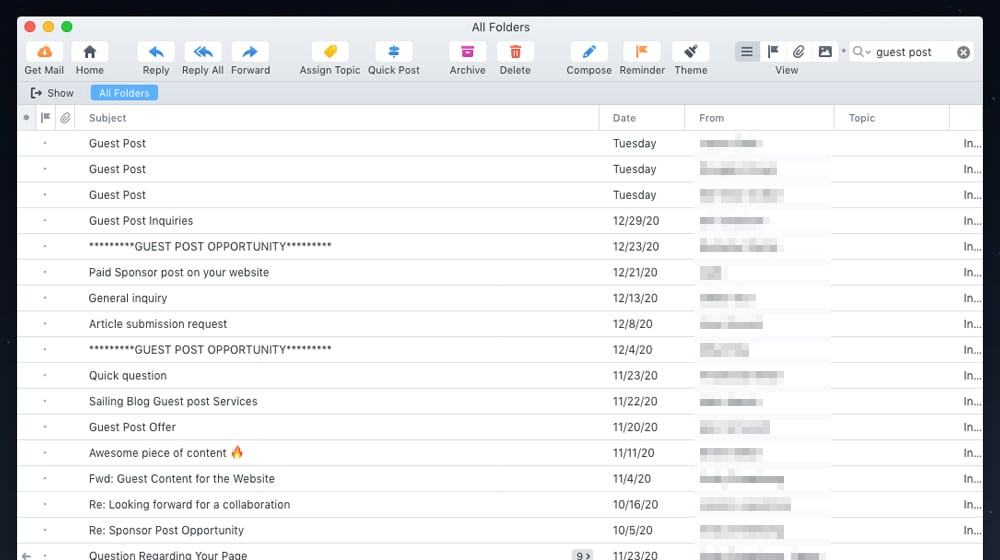
It's no wonder, then, that a service saying "we can do that for you" is such a golden goose. You pay them a small fee, and they get you published on high-quality and relevant websites. It sounds like a dream come true.
 30 Second Summary
30 Second Summary
You'll find that connecting with other bloggers takes time and patience. If you want real relationships, start by reaching out to peers at your level instead of industry stars. Build genuine connections by engaging with their content, sharing their posts and offering value before asking for anything in return. When you do reach out, focus on natural ways to help each other like guest posting or fixing broken links. Watch out for fake outreach services - they often just sell links from low-quality blog networks that could hurt your site. Real networking is slower but gets much better results.
The Dark Truth of Blogger Outreach Services
The unfortunate truth is, blogger outreach services are rarely what they claim to be. They claim to get you links, sure, and they'll provide you those links. However, those links aren't going to be from the big-name authority sites you think of.
They come from:
- Sites with a high Moz Domain Authority score, but which you have never heard of before.
- Sites without much relevance to you or your services.
- Sites where low-quality content is written by a ghostwriter who accepts payment to include a link that looks organic.
- Sites with low traffic, poor Google indexing, or major ranking issues.
- Sites that have obvious spam signals that you can tell just by looking at a few of their posts - car insurance links, roofing business, vacation rentals; there are over-optimized spam links nestled in every blog post - if you look for it.
This is all assuming you get links at all. Some blogger outreach services don't provide links - they provide the opportunity to get links. Some services send out emails to a list of popular bloggers in your industry, but that's about it.
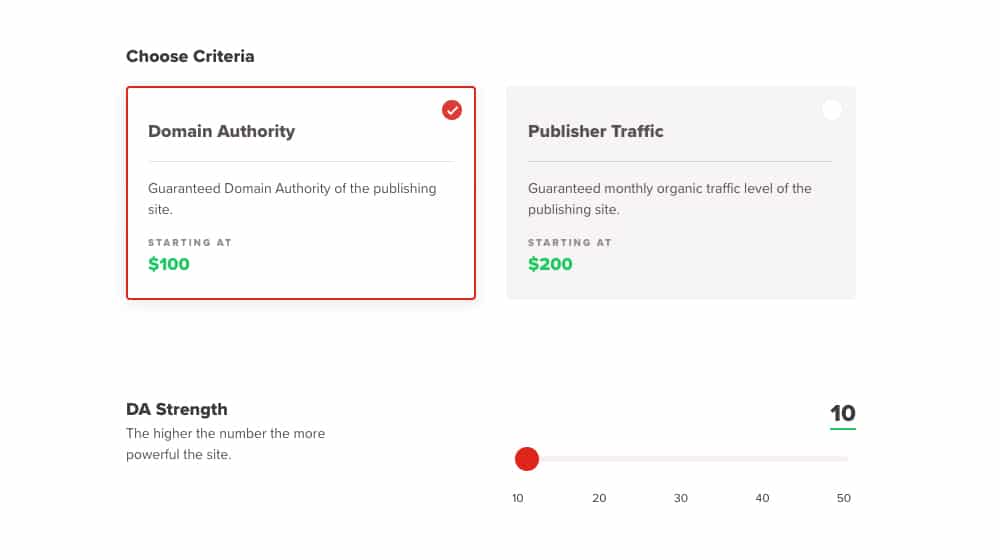
They do the outreach for you but they don't necessarily guarantee success. Frankly, these businesses are more legitimate than sites that guarantee placements. These aren't outreach services; "guaranteed placements" means that they have inventory. No outreach emails or negotiations are happening here. They're uploading an article to an admin panel on a website that they own.
I've reviewed dozens of these businesses and used many of them in the past. If you run a Google search for "blogger outreach services", nearly every business that comes up isn't reaching out to bloggers. They're selling private blog network links, also known as PBN links.
What Are PBNs and Why Are They Bad?
In case you don't know, a PBN is a Private Blog Network. A PBN is a privately-owned network of sites that are farmed solely to sell backlinks. These networks can contain a hundred or so sites, but many of the bigger names manage thousands of websites, all owned by the same company.
All of these sites are, for the most part, useless to you. They are hosted on a unique IP address and a random registrar to avoid drawing patterns to customers and to search engines, and they use a unique website template. Some sites will use WordPress, others will use Drupal, Joomla, Ghost, or another content management system. Most of the domains are drop-catches with existing authority - this makes it much easier for the PBN owner to build up their authority if they already have some authority from the start.
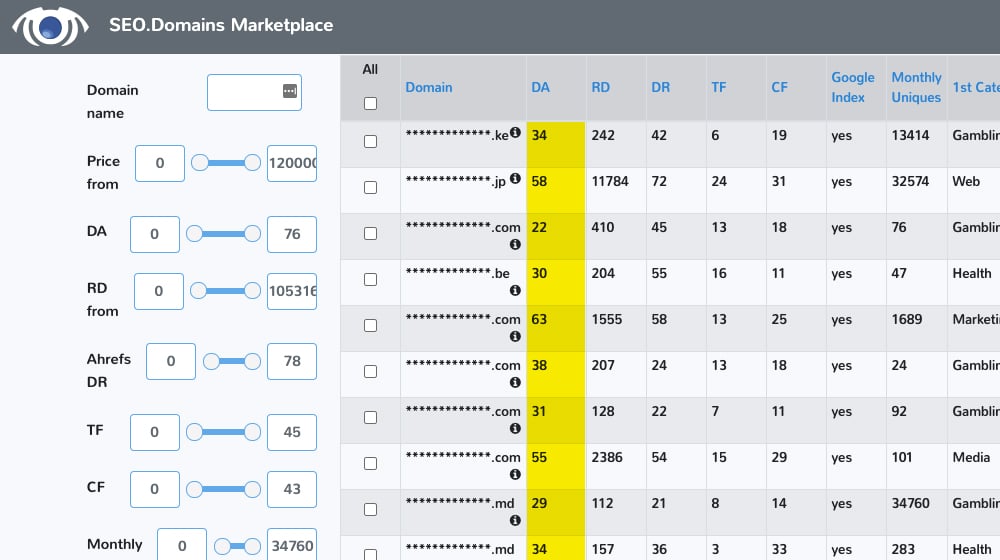
These sites look like a generic online magazine or a blog with categories all over the place to be inclusive to as many customers as possible.
You will rarely see ads, affiliate links, or eBooks for sale. Their goal isn't to make money from their website because revenue is already being made from the backlinks that they sell in the shadows.
That's in itself a bit odd, right?
The goal of these sites is to look legitimate enough. To someone who isn't very SEO savvy, they look like mediocre blogs, and that's fine, for the owner. These sites exist to funnel link juice to their customer's websites, and most of their customers aren't paying attention enough to know what they're paying for. It pains me to hear sometimes - I've seen businesses spend thousands on these links and cringed when I started digging into them to see that they were all PBN links from various "blogger outreach services".
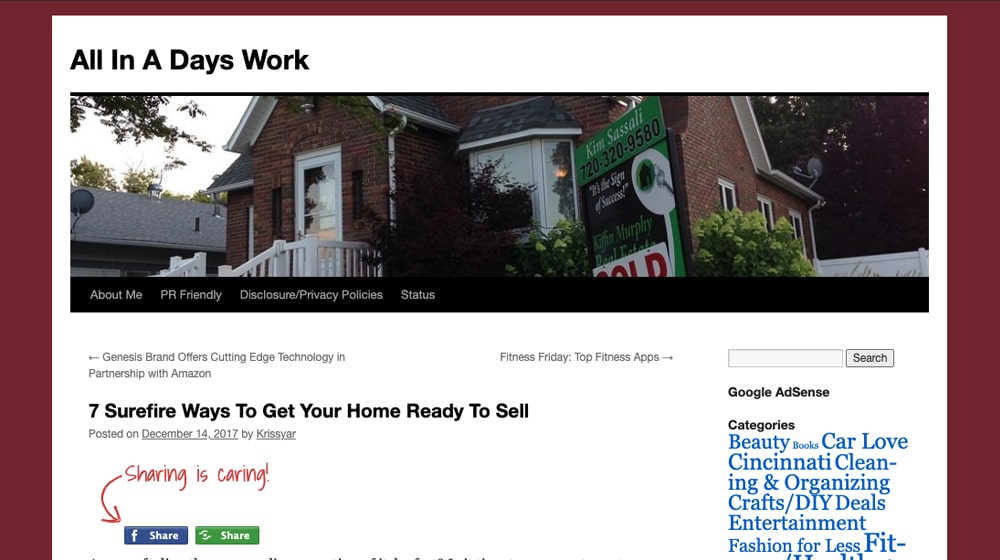
Google hates PBNs. They spend a lot of processing power mapping out links and site relationships, and they can often discover cases where a PBN is hidden - even if it's difficult to detect. Every few years, they do a big purge of PBN networks, deindexing the entire group. Those links you paid for are suddenly worthless, and the sites are often sold off not long after.
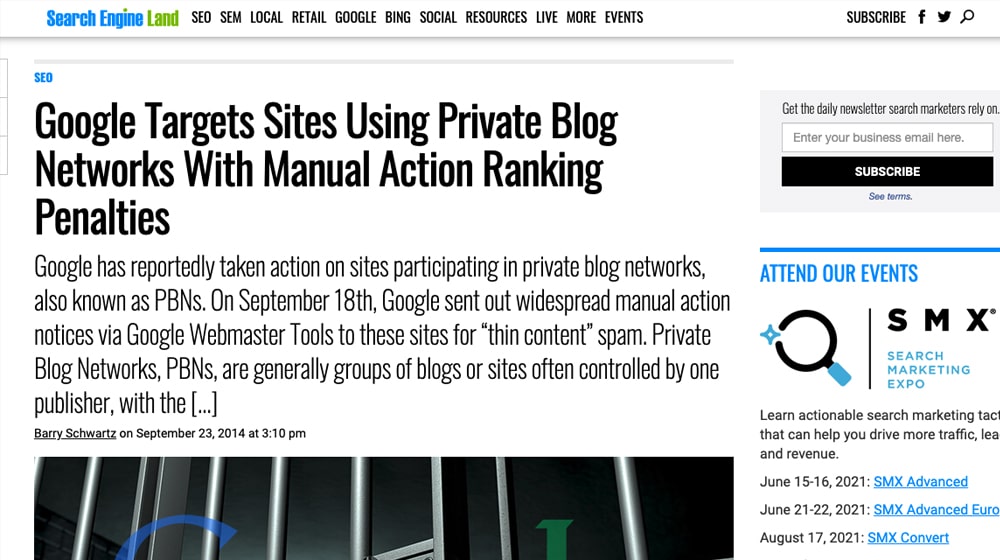
Deindexing isn't a very common occurrence, though, believe it or not. What's more common is for these sites to have tens of thousands of published blog posts but less than 1,000 organic visitors per month. Their website still shows up when you Google the website name, but none of the blog posts are showing up on the first 10 pages of Google. This is essentially a soft penalty, also known as the Sandbox Effect.
Google is smart - very smart. They also love patterns. PBN owners try their best not to leave patterns by never using the same host twice, using different C-blocks for their IP addresses, using many different domain registrars, and being very sneaky. However, the companies that buy their links are also buying links elsewhere, and their domain reputation isn't great. These sites are linking directly to homepages without any reason to do so in a way that doesn't make much sense contextually, and they're using unnatural keyword-rich anchor text. Every article has exactly one link to a customer's site, usually a low-authority homepage or service page, which is an easy pattern to detect.
"What about blogger outreach Company A and Company B?"
Yes, those sites are private blog networks too. No, they aren't manually reaching out to those websites. They have direct admin access to every website in their inventory, they have a writer crank out an article as quickly as possible, then they add your link and publish it.
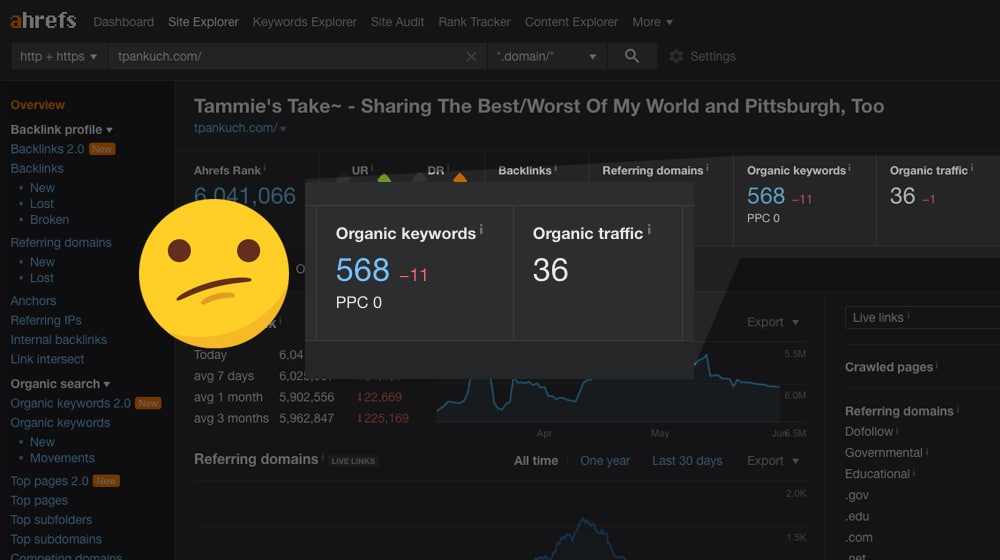
Shawna Newman wrote a great review after purchasing 35 links from one of the leading blogger outreach companies and even published the URLs for each website. Other customers shared their links in the comments section. They aren't pretty.
That's how these companies work. Now you know.
For those of you that are extra skeptical and might be doubting what I'm saying, I'll give you an elementary rundown of how backlink quality and authority are measured.
Google treats every backlink as a "vote". Some votes hold a lot of weight. If you were to be linked to from Harvard.edu, that website doesn't link to people very often. You certainly won't see any spammy links to "cheap car insurance" or "pest control Houston" sites. They have a long history, they publish high-quality content, they have a strict editorial process, and if they're linking to something, it's probably a great resource.
Now take one of these PBN sites. Click through to 10 or 20 of their articles, and try to find their customer's backlink. They'll usually link to a Wikipedia article here and a USAToday article there, but the small business website that you see in the article will be easy to find in every single article. They are giving votes indiscriminately to websites all over the place, regardless of quality or relevance.
We create blog content that converts - not just for ourselves, but for our clients, too.
We pick blog topics like hedge funds pick stocks. Then, we create articles that are 10x better to earn the top spot.
Content marketing has two ingredients - content and marketing. We've earned our black belts in both.

The content itself is short, fluffy, and doesn't have any value at all. The websites have no shares, no following, and no influence.
Imagine for a minute that a guy is walking down the street, shouting at every person he passes, "You're great! You're great! You're great!". That's what a PBN is. When Google sees those thousands of votes and evaluates the source, are they going to give those votes very much weight, or are they going to ignore them?
They're going to ignore them.
How to Perform Blogger Outreach Safely
So, if you can't do blogger outreach through these services, what can you do? Luckily, blogger outreach as a technique is legitimate and effective. It's just networking. The trouble is, it's difficult and time-consuming. Lots of trial and error, landing in people's junk boxes, getting ignored, and getting your pitches rejected. You might have to email a thousand different websites just to get one guest blog post published, and I'm not exaggerating.
I've had hundreds of guest blog posts published in the past, though not as many these days. I'm preoccupied with creating content for myself and my clients, which as it turns out, has been much more effective at earning links naturally.
Still, I've made a few valuable connections from guest blogging. Here's how.
1. Start small. You're not likely to get the attention of gurus in your industry unless you have a massive website that has an enticing audience. This goes for most of the big-name bloggers that you can think of - they are busy people.
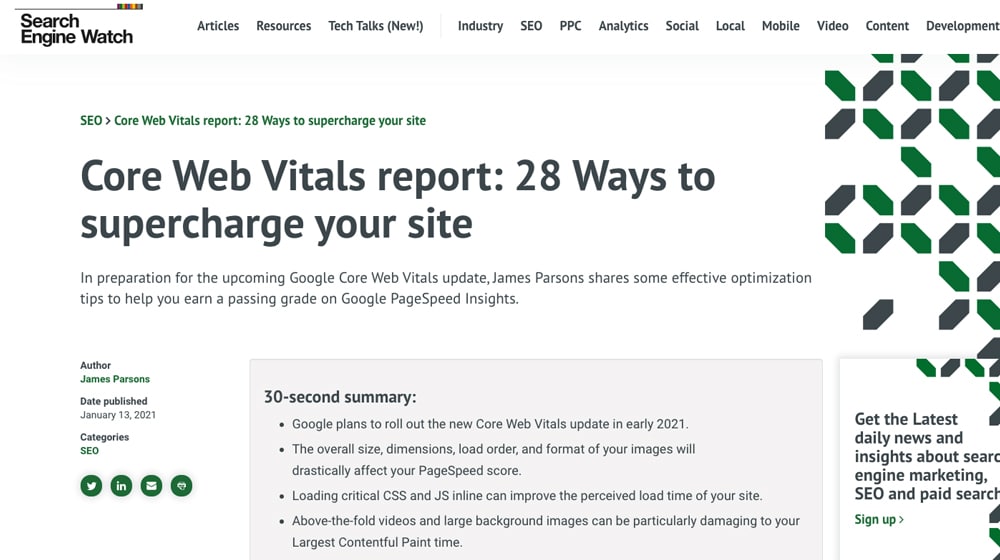
No, you need to start smaller. Think of it as a ladder. You're on a given rung. Your goal is to look for sites that are at the same rung as you, or perhaps a little higher. Network with these people.
Why does this work? Because, in this case, these are your peers. You're not reaching out to a celebrity, you're reaching out to another member of your university class. They may have a different background or a different set of resources, but they're still a peer.
It helps if you have a connection already. LinkedIn is great for this. If you have a friend who can introduce you, get the hookup. A foot in the door is always better than a cold call. I've introduced people to editors at certain websites, and in exchange, they've introduced me to editors at other sites.
Eventually, you will build up a portfolio of published content which will help you work your way up the ladder. The connections you've built do two things for you:
- They serve as first-degree connections for other bloggers they might know. If I know Steve and Steve knows Jessica, and Jessica knows Brian Dean, then I can get to know Steve. Eventually, I can ask Steve to introduce me to Jessica, and I can get to know her. Once I've known her for a while, I can ask her to introduce me to Brian Dean, and bam: I now have a connection to Backlinko.com.
- They build a base for your site. The more bloggers that you know and engage with, the more opportunities you have to link to each other legitimately. You benefit from each other, and as your sites grow, the rung you're standing on gets higher, and your list of potential peers grows.
Very few people start out writing for a site like Mashable on their first try. They all started writing for smaller sites first.
2. Audit the sites you're looking at. Before you reach out to the owner of a site, take a deep look at that site.
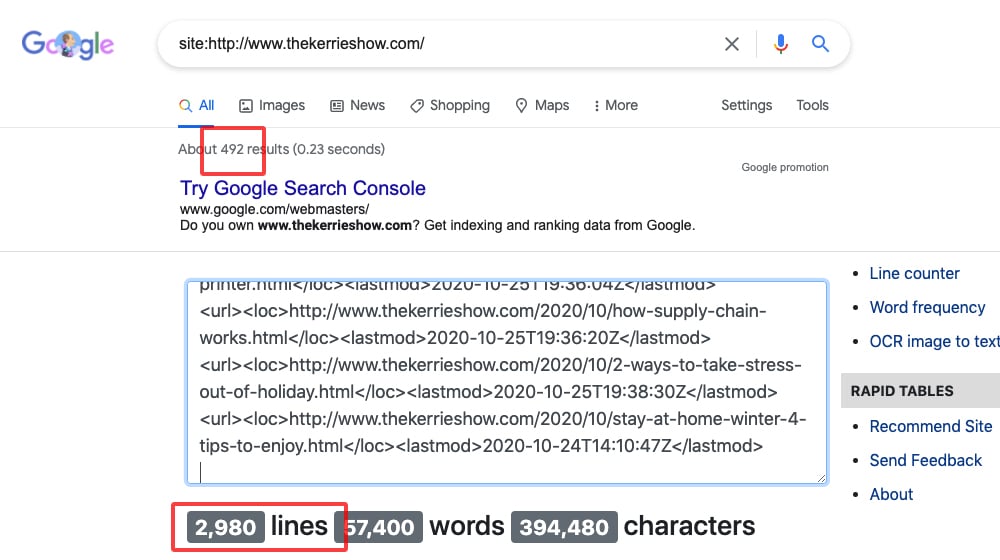
Are there any red flags that stand out?
- Does the site update very rarely? We're talking less than once a week; more like once a month, if that.
- What sites is the site linking to? Are they good sites, or are they bad, like it's linking to PBN spam sites or broken links?
- Look at the site on Ahrefs. How has its traffic and Google rankings trended lately?
- Is the website's content indexed? If a blog has 5,000 pages on it, but Google only indexes 200, something is wrong, and you probably don't want to get involved with it. That's not a good sign at all.
- Search the author. Are they a real person, or are they a stock photo? Do they contribute to other sites or just their own? You'd be surprised at how often a "site owner" is just a stock photo, a made-up name, and a fake bio.
These are just a few of the checks you can do. Remember to be skeptical.
Look, I get it. Identifying a PBN is difficult, and they're getting harder and harder to identify from ground level.
Search engines have infinitely more data to work with than we do. It's better to be safe than sorry.
How to Reach Out
If you've decided that a target blog is likely to be a real site and may be receptive to some outreach, how do you do it?
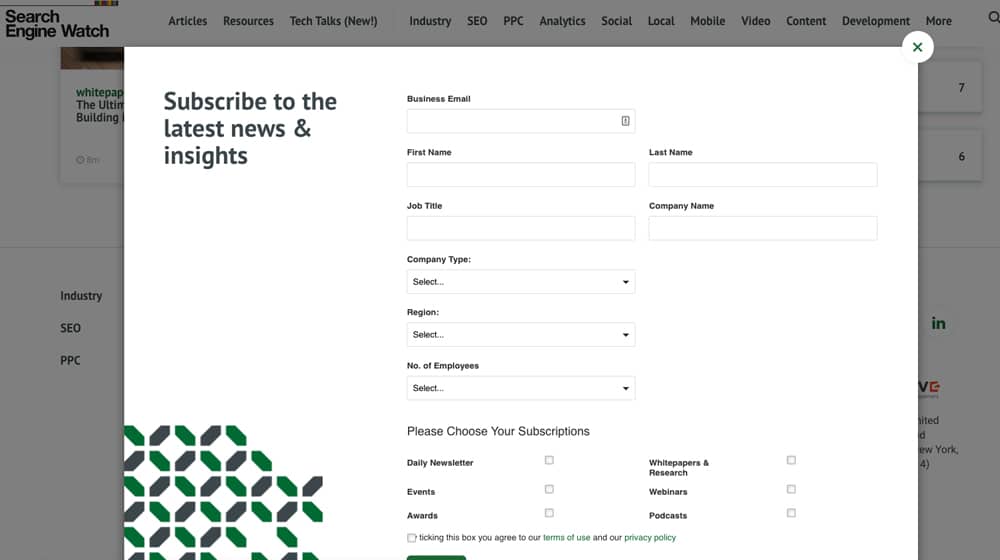
1. Befriend them. Consider what might be helpful to you as a blogger, and see if you can do that for them. Some ideas:
- Link to their content organically. Not their homepage, not an irrelevant page or a service page, their blog content. Do it weeks or months in advance of when you want to reach out to them.
- Promote their content. Find a recent post of theirs that you like and share it on your social media feeds. Tag them, so they can see it, but don't push a contact.
- Sign up for their newsletter. If they send it themselves, you can even consider replying to it and asking for clarification, adding a recommendation, or generally just engaging with them. This isn't common, though; most newsletters are sent from an unmonitored inbox or no-reply email address.
- Comment on their blog. When they publish new content, read through it. Try to think of an insightful question, an example (or counter-example), or another form of engagement for their post. Your goal is to be a common sight. Make sure that your social profile pictures, your author bio on your site, and your avatar in their comments section are all the same picture.
- Monitor their site for errors. Look for links that break, typos, inconsistencies, or other issues they probably want to deal with. If and when you spot them, point it out, either through their comments or via a contact directly with them.
All of this has one goal: to make you a friendly, helpful, and recognized face in their community. All of it is groundwork so that, when you reach out to them more directly, they know who you are.
2. Pick an outreach method and use it. There are a few different kinds of things you can do.
- Broken link building. When you find a broken link on their site, point it out to them, but recommend a post you wrote on the same topic as a replacement. If you're lucky, they'll take you up on it and replace the link with yours.
- Guest posting. Once they know you, and maybe you've exchanged a few conversational threads on Twitter or in their comment section, reach out asking if they'd like to guest blog for you or offering to guest blog for them. Don't talk about links as payment; just offer to swap content.
- Resource inclusion. If the blogger has ever written one of those "top 20 tools for sawing wood" kind of posts, and you happen to have a company that specializes in sawing wood, reach out and ask if they could include you on the list.
Follow these steps and you'll be off to a good start. If they don't respond to your efforts in step 2, go back to step 1. If they don't respond after a couple of cycles, move on to other sites. You should have several in progress at any given time, after all.
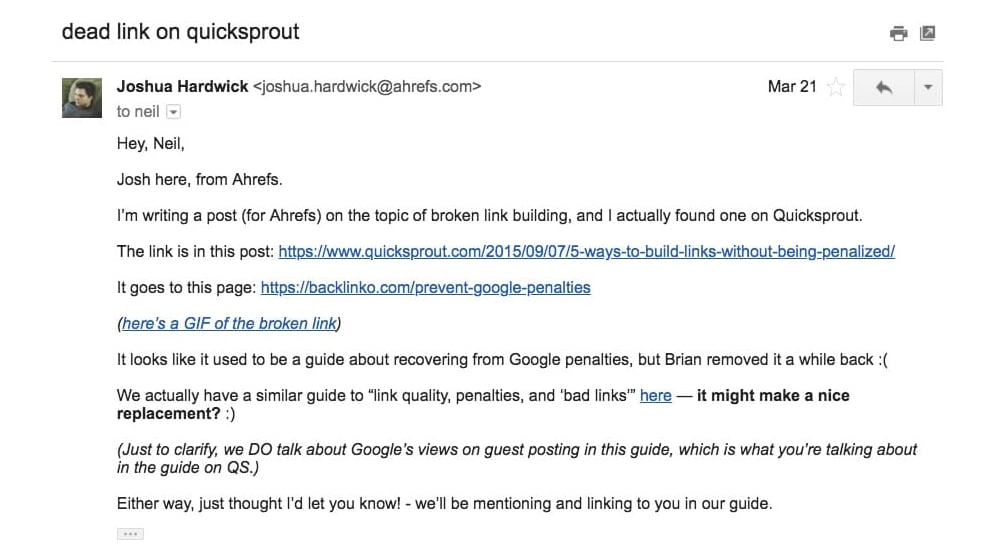
Yes, it's time-consuming. Yes, it's slow. It's dramatically more effective than getting links from private blog networks and being flagged for unnatural links. There are thousands of other businesses being published on these spam sites as well, and you can bet on many of them being far lower quality than yours. That's not a link neighborhood that you want to be a part of.
Are there any legitimate blogging outreach services? Sure. One that I stumbled across last year is Alan at MyGrowthGorilla. He recently removed his process page, but it can still be read in the depths of Archive.org. Just by looking at his tools and methodology, I can tell that he's the real deal. I'm not sure if he still offers this service, though. His pricing used to start at $3,000 per month - doing real blogger outreach is a lot of work.
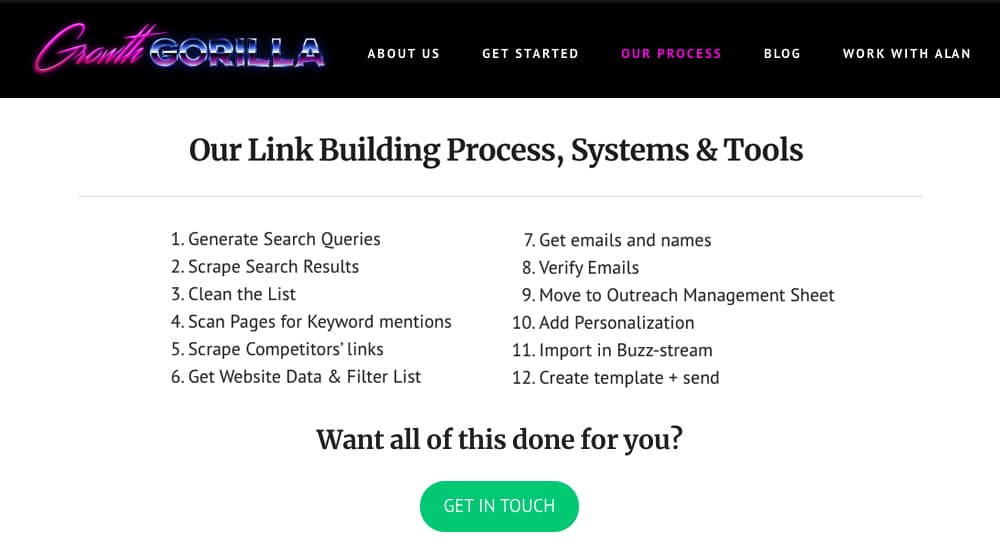
Do you have any questions for me? Did I ruffle any feathers by shining a light on this industry? Do you disagree with me? Please drop me a comment down below! I reply to every comment and would love to hear from you.



 30 Second Summary
30 Second Summary


July 22, 2021
Hi James,
Wow, thank you for this. This is practically investigative journalism, you blew this thing wide open.
I had my suspicions, but reading these other articles and seeing the examples you linked confirmed everything I feared.
It's a shame that people are paying for this that don't know better.
They got me, I wasted hundreds of dollars on crappy links.
Thanks again for shedding light on this subject.
With love,
Lisa Carter
July 24, 2021
Hi Lisa!
Hey, that means a lot! Thanks for the very kind words.
That's my goal here, education and to keep people from wasting their money. Much better ways to invest in your website and marketing than these PBN services.
February 13, 2022
Woah, this sure is eye-opening. I've always been intrigued by those services but fortunately, I haven't tried them out yet. Good thing I saw this article
February 21, 2022
Hey Karan!
I'm glad this was helpful. All outreach services aren't like this. For example, Alan at My Growth Gorilla does excellent work, and you can see his process on his website.
He's also expensive - but there is so much work in "real" blogger outreach.
It's a much easier business model to inventory websites on hand. You never miss a deadline, you can sell in bulk, and you can beat the pricing of people doing the real outreach.
This disparity is why most of these blogger outreach guys are essentially private blog networks. It's just easier to scale, and you can take on an unlimited number of clients.
I'd say 98% of their customers don't even know the difference between real outreach and a PBN, too, which is unfortunate.
June 20, 2022
It's good to know they aren't all like this! I checked out Alan's work at Growth Gorilla and I was blown away. Makes sense why he's expensive. I personally think I'll keep staying away from outreach services but I can see why some people might still opt for it.